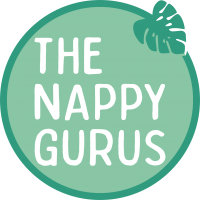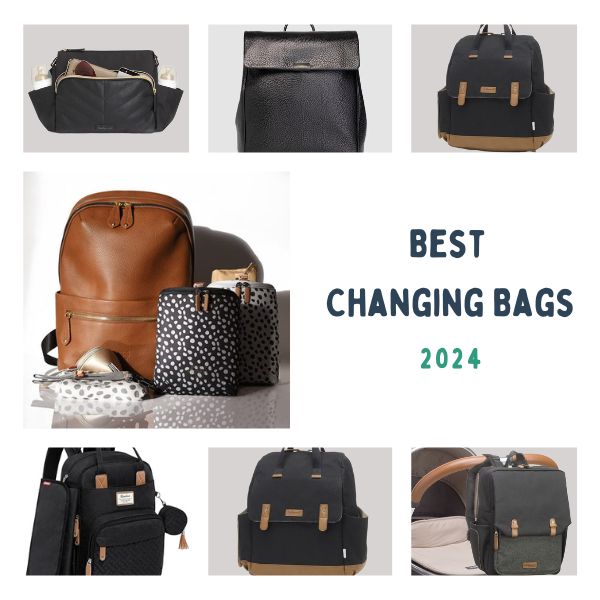The Great Big Nappy Census reveals sustainable parenting is on the rise
Climate change is one of the most defining issues of this generation. From shifting weather patterns to a rise in sea levels, the environment is struggling to keep up with the negative impact humans are having on the planet.
With this in mind, our Great Big Nappy Census for 2021 has taken an in-depth look at sustainable parenting so we can find out more about how parents view reusable products and how many think eco-conscious parenting is important.
For this year’s Great Big Nappy Census, we surveyed over 3,900 parents to delve into the UK's mums and dads’ green choices. Our new report reveals that a huge 88% of parents think eco-conscious parenting is important for their children¹.
Polling parents who only use reusable nappies, those who only use disposable nappies and parents who use a mix of both products, we can reveal what parents in the UK had to say about their nappy usage:
Disposable nappy users
According to our insight, almost two-thirds of disposable nappy users (62%) are aged 25 to 34 years old, with the majority located in London (19%).
When asked about what has stopped them from using a reusable nappy option, the top reason disposable nappy users gave was the washing (77%), followed by the money outlay (44%), the fact they seem complicated(38%), concerns over the bulkiness of the nappy (20%) and being able to use them with childcare providers (14%). Other notable concerns were nappy rash (5%) and judgement from family and friends (5%).
However, even though disposable nappy users are hesitant to make the switch, 70% say they would consider making the sustainable switch if they were supported in the process. Our Great Big Nappy Census revealed the top ten factors that disposable nappy users would find helpful in encouraging parents like them to choose cloth nappies over disposables:
Free samples - 66%
Better access in high street stores/supermarkets - 50%
Incentive vouchers - 42%
Local nappy laundry services - 37%
Recommendations by healthcare professionals - 32%
Local nappy lending kits - 28%
Peer support - 21%
TV advertising - 11%
Social media influencers - 11%
Celebrity endorsements - 4%
On top of this, our new report reveals that 9 in 10 parents (98%) would be in favour of a national reusable nappy incentive scheme, suggesting that if parents receive support to kick start their sustainable journey, they would be more inclined to make greener choices.
Delving into the potential savings of eco-parenting decisions, disposable nappy only users (43%) told us they spend just under £20 every month on disposable nappies. With the average infant using nappies for four years, parents could be literally throwing away £900 during infancy and sending it to landfill.
Reusable nappy only users
With Covid-19 stripping supermarket shelves bare and parents stocking up on baby essentials, this led to a shortage of disposable nappies and, in turn, an increase in cloth nappy usage. Our report reveals that 60% of those currently using cloth nappies started using them during the pandemic.
Before these users started using reusable cloth nappies, a third (33%) were concerned about the hygiene of reusables and how they would wash them effectively. However, with these parents utilising Facebook groups (67%), advice questionnaires (48%), Instagram (33%), and Youtube (30%), they were able to gather insight on how to best wash their reusable nappies and therefore felt confident in making the eco-friendly switch.
As well as this, the Great Big Nappy Census 2021 reveals that cloth nappy users (29%) could spend less than £300 during infancy, which is a saving of £600 per child when comparing reusables to disposables.
If you are hesitant to switch to cloth nappies, we encourage parents to think not only about the environmental impact disposables have but about the cost-saving element of making the switch too. Becoming a parent can stretch a family's finances, but finding cheaper alternatives to parenting could massively reduce the cost of bringing up a child.
Reusable and disposable nappy users
A large percentage of those surveyed (91%) said they use both reusable and disposable nappies, and one of the reasons for this is nappy shortages during the pandemic. According to the Great Big Nappy Census 2021, the top five motivations for using cloth nappies are:
Environment/plastic waste - 95%
Reduce household waste - 79%
To save money - 50%
They look great - 50%
Skin sensitivities - 26%
Since buying reusable nappies, these users have received support from various outlets, including social media (78%), the retailer they purchased from (42%), friends and family (26%), baby groups (15%), the manufacturer (15%), and healthcare professionals (1%).
When asked what factors they feel would be helpful in encouraging other parents to choose cloth nappies over disposable nappies, the top ten factors respondents gave were:
Incentive vouchers - 70%
Recommendations from healthcare professionals - 69%
Better access in high street stores/supermarkets - 62%
Free samples - 60%
Peer support - 52%
Local nappy lending kits - 51%
Social media influencers - 45%
TV advertising- 44%
Local nappy laundry service - 30%
Celebrity endorsements - 25%
Thoughts from an eco-friendly mum
Eco-conscious mum of two, Emma Reed spoke to us on why parents need to make greener choices moving forward: “It’s important for me as a parent to make more sustainable choices because I feel I have a responsibility to leave a safe place for future generations to live in. With the current climate crisis and our ever-growing plastic and waste problems, we have an awful lot of damage to reduce and, if possible, fix, which is why I aim to take as many small sustainable steps as I can each and every day.
“My sustainable journey began when I discovered how damaging disposable nappies are to our environment. Hearing that one nappy can take 500 years to degrade was a big trigger for me, and so my very first sustainable swap was reusable nappies. My advice for any new parent who is considering becoming more eco-conscious is not to overthink it. For instance, if we take reusable nappies, today’s designs are a far cry from the old-style terry towels with safety pins. It is much easier to fasten them, use them and wash them, and they are a joy rather than a chore. Reusable options will also save you money in the long run, which makes them even more appealing - it’s a win for you as well as the environment!”.
Making small changes makes a big difference
With COP26 highlighting new and concerning figures on climate change, it’s great to see so many parents in the UK putting effort into making more eco-conscious parenting choices. From using reusable nappies instead of disposables to switching to washable wipes from plastic wipes, there are so many small ways parents can make a big difference to the environment.
Considering the figures from our Great Big Nappy Census 2021, it’s clear that Brits are keen to reduce their carbon footprint through their parenting choices. With the average daily plastic consumption of single-use nappies equivalent to throwing away seven supermarket plastic carrier bags per day per person, parents in the UK must keep at their sustainable efforts in order to make a positive impact.
Using just one reusable nappy per day, in place of a disposable one, could save 730 nappies from landfills, supporting the government’s objective of eliminating all avoidable waste by 2050.
Other findings
In addition to the above, we asked respondents about using second-hand items such as preloved cloth nappies and a staggering 90% of parents said they would accept preloved these items. When discussing reusable nappy incentive schemes, 59% said their local council does not offer any reusable nappy incentive schemes. Only 22% of those polled said their council currently has a scheme live and 19% admitted they did not know if their council had this support. Interestingly, 87% said if their council did offer the scheme, they would use it.
For more reusable cloth nappy tips and advice, please visit: https://www.thenappygurus.com/help.html


